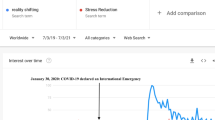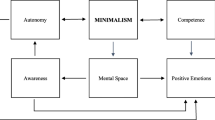Abstract
Hartmut Rosa’s research has been extremely influential in promoting the view that modernity and late modernity are characterized by “speeding up,” or structural “dynamic stabilization.” More recently, Rosa has turned to describing the existential effects of living in late modernity, and the particular view of the good life it encourages. Late modernity began with the promise to make the world more available, attainable, and accessible. Unfortunately, however, the high-level instrumentalization that characterizes these changes led to feelings of alienation. Rosa’s solution is to develop a philosophical method for fostering what he calls “resonance.” In this article, I will introduce the Daoist notions of the “mechanical heart-mind,” “self-so,” “nonaction,” “knowing satisfaction,” and “rambling” as potential complements to Rosa’s concept of resonance. I argue that they can serve to bolster Rosa’s view and provide a more active way to conceive of the good life through engagement with our social and natural environments.
Similar content being viewed by others
References
Blatterer, Harry. 2018. “An Incomplete Dialectics? Rosa on the Good Life.” Thesis Eleven 146.1: 140–147.
Bauman, Zygmunt. 2005. Liquid Life. Malden: Polity Press.
Chen, Guying 陳鼓應. 1983. Contemporary Annotation and Interpretation of the Laozi 老子今注今譯. Beijing 北京: Zhonghua Shuju 中華書局.
______. 2008. New Theories on Laozi and Zhuangzi 老莊新論. Rev. ed. Beijing 北京: Shangwu Yinshuguan 商務印書館.
Chen, Yun 陳贇. 2016. The Essence of Zhuangzi’s Philosophy 莊子哲學的精神. Shanghai 上海: Shanghai Renmin Chubanshe 上海人民出版社.
D’Ambrosio, Paul J. 2018. “Satisfaction, Genuine Pretending, and Perfection.” In Encountering China, edited by Michael J. Sandel and Paul J. D’Ambrosio. Cambridge, MA: Harvard University Press.
______. 2019. “From Present to Presentation: A Philosophical Critique of Hartmut Rosa’s ‘Situational Identity’.” Time and Society 28.3: 1061–1083.
Fu, Peirong 傅佩榮. 2012a. FuPeirong’s Explanations of the Laozi 傅佩榮譯老子. Taipei 台北: Dongfang Shudian 東方書店.
______. 2012b. FuPeirong’s Explanations of the Zhuangzi 傅佩榮譯莊子. Taipei 台北: Dongfang Shudian 東方書店.
Graham, A. C., trans. 1981/2001. Chuang-tzu: The Seven Inner Chapters and Other Writings from the Book of “Chuang-tzu.” London: Allen and Unwin.
______. 1985. Reason and Spontaneity. London: Curzon Press.
Han, Byung-Chul. 2009. Der Duft der Zeit: Ein philosophischer Essay zur Kunst des Verweilens [The Scent of Time: A Philosophical Essay on the Art of Lingering]. Bielefeld: Transcript.
Heath, Joseph. 2016. “Review of Social Acceleration by Hartmut Rosa.” Political Theory 44.1: 150–153.
Heidegger, Martin. 1969. Discourse on Thinking. Trans. by John M. Anderson and E. Hans Freund. New York: Harper & Row.
Hu, Jichuang 胡寄窗. 2011. The History of China’s Economic Thought 中國經濟思想史. 4th ed. Beijing 北京: Shangwu Yinshuguan 商務印書館.
Leeder, Karen. 2015. “Figuring Lateness in Modern German Culture.” New German Critique 42.2: 1–29.
Legge, James, trans. 1891/2019. The Writing of Chuang Tzu. In Chinese Text Project, edited by Donald Sturgeon. https://ctext.org/zhuangzi/zh?en=on (last accessed on October 8, 2019).
Levinovitz, Alan. 2012. “The Zhuangzi and You 游: Defining an Ideal Without Contradiction.” Dao 11.4: 479–496.
Moeller, Hans-Georg, and Paul J. D’Ambrosio. 2017. Genuine Pretending: On the Philosophy of the Zhuangzi. New York: Columbia University Press.
Nietzsche, Friedrich. 1914. The Will to Power. Trans. by Anthony M. Ludovici. Edinburgh: T. N. Foulis.
Reed, Isaac. 2016. “Hartmut Rosa’s Project for Critical Theory.” Thesis Eleven 133.1: 122–129.
Ren, Jiyu 任繼愈, ed. 1963. A History of Chinese Philosophy 中國哲學史. Beijing 北京: Renmin Chubanshe 人民出版社.
Rosa, Hartmut. 2013. Social Acceleration: A New Theory of Modernity. Trans. by Jonathan Trejo-Mathys. New York: Cambridge University Press.
______. 2014. “How Growth Enters our Imaginaries and How We May Get Rid of It.” September 4. https://www.youtube.com/watch?v=XCLPpU0hSUw (last accessed on October 8, 2019).
______. 2016a. “Hartmut Rosa—Social Acceleration.” March 7. http://www.cccb.org/ca/multimedia/videos/el-nostre-temps-vides-accelerades/223370# (last accessed on October 8, 2019).
______. 2016b. Resonanz [Resonance]. Berlin: Suhrkamp Verlag.
______. 2017a. “(Un)Making Subjects of Growth: Dynamic Stabilization and the Resonance Conception of Subjectivity.” January 9. https://www.youtube.com/watch?v=vnryvhdL1tY (last accessed on October 8, 2019).
______. 2017b. “Do We Really Live in a Acceleration Society?” January 16. https://www.youtube.com/watch?v=VHk1iPvujic (last accessed on October 8, 2019).
_____. 2017c. “Living in Times of Acceleration.” February 22. https://www.youtube.com/watch?v=_BwKasee9Qc (last accessed on October 8, 2019).
______. 2018. “Available, Accessible, Attainable: The Mindset of Growth and the Resonance Conception of the Good Life.” In The Good Life Beyond Growth, edited by Hartmut Rosa and Christoph Henning. New York: Routledge.
Rosa, Hartmut, and Christoph Henning. 2018. “Good Life Beyond Growth: An Introduction.” In The Good Life Beyond Growth, edited by Hartmut Rosa and Christoph Henning. New York: Routledge.
Sandel, Michael J. 2007. The Case against Perfection. Cambridge, MA: Belknap Press of Harvard University Press.
_____. 2018. “Learning from Chinese Philosophy.” In Encountering China, edited by Michael J. Sandel and Paul J. D’Ambrosio. Cambridge, MA: Harvard University Press.
Schöneck, Nadine. 2015. “Europeans’ Work and Life—Out of Balance?” Time and Society 27.1: 3–39.
Slingerland, Edward. 2003. Effortless Action: Wu-wei as a Conceptual Metaphor and Spiritual Ideal in Early China. New York: Oxford University Press.
______. 2014. Trying Not to Try: Ancient China, Modern Science and the Power of Spontaneity. New York: Penguin Random House Company.
Sturgeon, Donald, ed. 2006–2019. Chinese Text Project. https://ctext.org (last accessed on October 8, 2019).
Taylor, Charles. 2018. “Resonance and the Romantic Era: A Comment on Rosa’s Conception of the Good Life.” In The Good Life Beyond Growth, edited by Hartmut Rosa and Christoph Henning. New York: Routledge.
Wang, Bo 王博. 2004. The Philosophy of Zhuangzi 莊子哲學. Beijing 北京: Beijing Daxue Chubanshe 北京大學出版社.
Wang, Deyou 王德有. 2010. Wei-Jin Neo-Daoism: Leisurely Living Hermits 魏晉玄學: 高蹈飄逸的閑適人生. Shanghai 上海: Dongfang Chuban Zhongxin 東方出版中心.
Weber, Max. 1958/2003. The Protestant Ethic and the Spirit of Capitalism. Trans. by Talcott Parsons. New York: Dover Publications.
Yang, Guorong 楊國榮. 2009/2017. Zhuangzi’s World of Thought 莊子的思想世界. Shanghai 上海: Huadong Shifan Daxue Chubanshe 華東師範大學出版社.
Zantvoot, Bart. 2016. “Political Inertia and Social Acceleration.” Philosophy and Social Criticism 43.7: 707–723.
Ziporyn, Brook. 2003. The Penumbra Unbound: The Neo-Taoist Philosophy of GuoXiang. New York: State University of New York Press.
______, trans. 2009. Zhuangzi: The Essential Writings with Selections from Traditional Commentaries. Indianapolis: Hackett.
Acknowledgment
The author(s) disclosed receipt of the following financial support for the research, authorship, and/or publication of this article: Fundamental Research Funds for the Central Universities (No.:2018ECNU-QKT010).
Author information
Authors and Affiliations
Corresponding author
Additional information
Publisher’s Note
Springer Nature remains neutral with regard to jurisdictional claims in published maps and institutional affiliations.
Rights and permissions
About this article
Cite this article
D’Ambrosio, P.J. The Good Life Today: A Collaborative Engagement between Daoism and Hartmut Rosa. Dao 19, 53–68 (2020). https://doi.org/10.1007/s11712-019-09703-1
Published:
Issue Date:
DOI: https://doi.org/10.1007/s11712-019-09703-1




